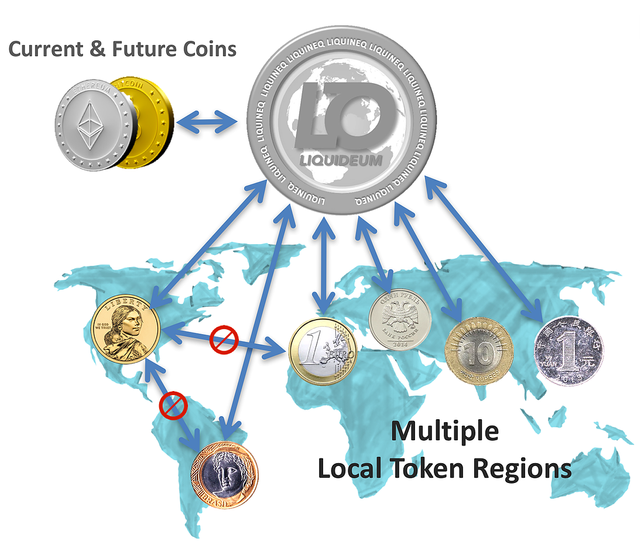Stealth Swiss startup debuts blockchain-powered fund transfer platform
Consilia Vektor News and Comment
A Swiss software startup emerges from stealth today (07 August 2018), announcing a new service for fund transfer that carries the approval of Swiss authorities. Liquineq AG says it offers a “permissioned, multi-tier blockchain-based financial platform optimized to address the inefficiencies in the existing banking system.” In effect, Liquineq offers banks a way to reinvent their business model in the blockchain era.
Liquineq says a ruling from the Swiss Financial Market Supervisory Authority (FINMA) “recognizes the company’s tokens as a means of payment.” The company’s product is essentially a decentralized software platform offering banking as a service. In documents released with the launch Liquineq says the platform will allow banks to “transition from capital-intensive banking to pay-as-you-go banking.”

Liquineq will allow banks and consumers to store multiple currencies — fiat and crypto — in one wallet. (Image courtesy Liquineq AG)
The company plans to conduct an Initial Coin Offering (ICO) to raise investment funds later in 2018, at an initial price of $0.10. The technology of the Liquineq token is based on Ethereum.
In the Liquineq model, local banking partners offer transaction services using the local currency and funds held by the local bank. When a transfer is requested, the use of the Liquineq blockchain makes for instant settlement of wallet-to-wallet money transfer; distance is irrelevant. A single Liquineq wallet can hold multiple currencies. The Liquineq system offers integrated Know Your Customer (KYC) and Anti-Money Laundering (AML) compliance.
In its announcement, Liquineq takes pains to distinguish its service from Ripple, a top-10 cryptocurrency built for money transfer. “Ripple is just a bolt-on to existing banking systems,” the Liquineq FAQ says. “They allow moving value between banks faster, but there are many other fast money movement solutions in the market.”
Banks who adopt Liquineq will gain “significantly enhanced compliance with regulations,” and cost low enough to offer banking services to “the 3.5 billion people who are unbanked today” at a profit.
Liquineq is built from a rework of Ethereum technology. The company says it can run today at 10,000 transactions per second (tps). Sharding will be added soon, which Liquineq claims will allow the service to run at “a few million tps.”
Instead of the common permission-less Proof-of-Work cryptographic method, the Liquineq system uses a permissioned network. Permission is granted by a holder of a “root of trust,” which is someone who is actively supervised by at least two different reputable institutions such as an independent auditor or a bank supervising authority.
Consilia Vektor comments
Banking today is a capital intensive business, requiring mainframe computers, huge server farms, large IT staff, and deep financial reserves. Money transfer is a long and painful process because there are layer upon layer of ledger transactions to guarantee the money moves as instructed.
Liquineq is distinctive in several ways for a blockchain platform. It is not anonymous, it is not permissionless, and it is carrying the approval of a leading bank regulation agency. The Root of Trust system allows it to feel like a bank and work like a blockchain. The built-in KYC/AML provisions and its adherence to the EU’s tough new privacy code will be attractive to banks desperate to modernize in the Bitcoin era.
When a bank offers the Liquineq service, its customers will be able to set up and fund an account in minutes by downloading a Liquineq-enabled mobile wallet. The company prefers to support a variety of existing blockchain wallets, but will also offer its own open source wallet.
The whole system becomes a platform for smart contracts as a service. Liquineq envisions banks offering loyalty programs, bill paying, micropayments, and more services now offered by such non-bank players as PayPal and Apple Pay.
This appears to be a well-thought out and well-executed service. Notable endorsements include Gordon Werkema, former COO at the Federal Reserve of Chicago, and Daniela Mielke, former head of global strategy at both PayPal and Visa.
Liquineq CEO Moti Birger says the goal is for financial institutions to “transition virtually without risk and capital investment from a mainframe-based high-capital and operational expense business model to an ultra-low cost, pay-as-you-go operating model.” Only time will tell if banks are ready to move into the future with such an ambitious platform.
More information: https://liquineq.ch/